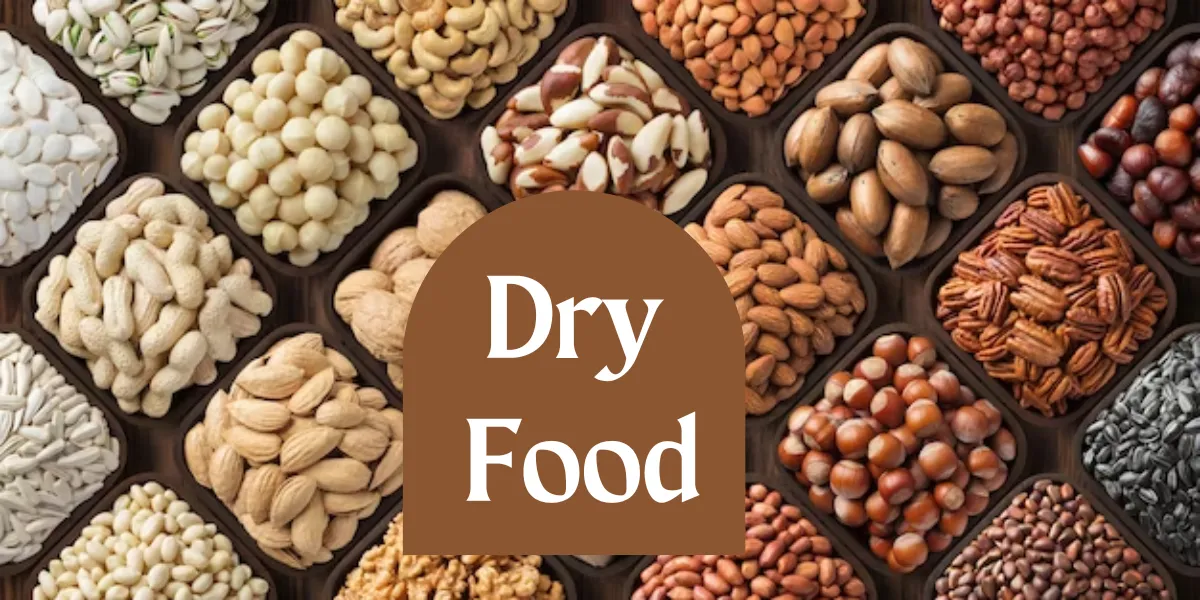The Importance of Dry Food in a Well-Balanced Diet
Dry food, also known as kibble, is a popular choice for many pet owners and individuals seeking convenient and nutritious meals. With its numerous benefits and wide availability, dry food has become a staple in the diets of both humans and pets alike. This article explores the importance of incorporating dry food into a well-balanced diet, highlighting its advantages and considerations.
Nutritional Value of Dry Food
Dry food offers a range of essential nutrients necessary for maintaining a healthy diet. It is often fortified with vitamins, minerals, and other vital elements to ensure balanced nutrition. Many dry food varieties are specifically formulated to meet the dietary needs of different individuals, including those with specific health conditions or dietary restrictions. From proteins and carbohydrates to fats and fibers, dry food provides a diverse nutritional profile that can support overall well-being.

Convenience and Long Shelf Life
One of the main advantages of dry food is its convenience. Unlike perishable foods, dry food has a significantly longer shelf life, making it an excellent choice for individuals with busy lifestyles or limited access to fresh ingredients. Dry food can be stored for extended periods without the need for refrigeration, reducing the risk of spoilage and food wastage. Additionally, its portability makes it an ideal option for travel or outdoor activities, ensuring that individuals can maintain a consistent and nutritious diet wherever they go.
Oral Health Benefits
Dry food plays a crucial role in promoting good oral health. The texture and crunchy consistency of dry food help to stimulate chewing and promote saliva production, which can aid in maintaining healthy teeth and gums. The chewing action on Dry Food can also help remove plaque and tartar buildup, reducing the risk of dental issues such as tooth decay or gum disease. Incorporating dry food into a balanced diet can contribute to overall oral hygiene, complementing regular dental care practices.
Weight Management and Satiety
Another significant advantage of dry food is its potential role in weight management. Dry food often has a lower moisture content than wet or canned food, resulting in a higher caloric density. This means that smaller portions of dry food can provide the same amount of calories as larger portions of wet food. Consequently, individuals can effectively manage their caloric intake and portion control, promoting healthy weight maintenance or weight loss goals. Additionally, the chewing process involved in consuming dry food can contribute to a feeling of satiety, potentially reducing overeating tendencies.
Considerations and Potential Limitations
While dry food offers numerous benefits, it is essential to consider individual dietary needs and preferences. Some individuals may have specific food allergies or sensitivities that require alternative options. Additionally, it is crucial to select high-quality dry food products that are free from excessive preservatives, artificial additives, and fillers. Consulting with a healthcare professional or nutritionist can help determine the most suitable dry food options for individual needs and ensure a well-rounded diet.
Incorporating dry food into a well-balanced diet can provide various advantages, including nutritional value, convenience, oral health benefits, and weight management support. With its long shelf life and easy portability, dry food offers a practical solution for individuals seeking consistent and nutritious meals. However, it is important to consider individual dietary requirements and select high-quality products to maximize the benefits of dry food. By making informed choices, individuals can enjoy the advantages that dry food brings to their overall health and well-being.





